At 2.50pm on Friday, May 13, an Iranian would-be internet user in Khuzestan opens up Google on their phone and types one innocuous word into the search bar: “Washington”. The search engine thinks about it a little while. Then they’re presented with the weak visual joke now familiar to Chrome users the world over, a dog-eared piece of paper with a sad face on, together with the error message: “This site can’t be reached / google.com refused to connect.”
Our user then punches in the web address for Digikala, an Iranian online digital marketplace. This website is up and available, and it loads quickly too. So is Aparat, the Iranian video streaming service. In fact, all the Iranian copycat versions of major platforms can be reached. Just not the original ones. Or anything else.
This is the type of "computer network" (NOT THE INTERNET) that Iranian people who are living in #Khuzestan are using. No access to @Google, but local services such as @Digikalacom and @aparatcom are available.#KeepitOn #InternetShutDown pic.twitter.com/fNRU3l4ys1
— Filterbaan | فیلتربان (@filterbaan) May 13, 2022
The reason for this is that the user isn’t connected to the web. This strange twilight world is Iran’s National Information Network. Visitors are presented with a facsimile of the real internet that, on closer inspection, turns out to be a closed horizon: a utopian domestic intranet that officials in Tehran eventually want to replace the real thing for a lot of the people, a lot of the time.
The network is under constant surveillance by the military and security apparatus. As such, it’s not safe to post sensitive information there. And as time goes on, it’s getting harder for ordinary users to break out of. You can check out any time you like, as the song goes, but you can never leave.
The National Information Network is also what many people in Iranian provinces, cities and neighborhoods affected by the current street protests are seeing at the moment. Some may not even realise it.
At least five named individuals have reportedly been killed at demonstrations over the last 10 days at the same time as targeted internet throttling and shutdowns have been imposed. Observers now fear that state forces are again committing atrocities under cover of digital darkness.
Policing the Border
The above video, a rare glimpse of the way the National Information Network (NIN) actually operates at the user-facing end, was sent to Filterwatch: a dedicated internet filtering observatory created by the London-based NGO Small Media and now run by Miaan.
Filterwatch researcher Amir Rashidi told IranWire that it’s currently near-impossible for people to send information out of Khuzestan. As such, someone had to physically go into the province where the bread protests began, record the clip, then leave again just in order to send it across.
“Imagine wanting to cross a border,” he said. “You can go anywhere in the country you want. You can go to the Starbucks. But when you want to go to the Starbucks in Italy, you have to pass a border. This is the situation. It’s why we aren’t seeing videos or evidence of the crackdowns.”
Last week Rashidi published a report on internet and recent mobile data shutdowns and bandwidth throttling in Khuzestan’s provincial capital, Ahvaz, as well as Abadan, Hamidiyeh, Susangerd and Izeh. Ordinary people and homes in the five cities and elsewhere were subject to a total blackout for 48 hours before even the NIN was reintroduced.
As before, Filterwatch’s surveys showed a high level of “tiered access”: local data centers maintained a connection, meaning local businesses, banks, government offices and police stations could keep running as normal. These locations are heavily monitored so as the regime sees it, there is little chance of anyone trying to post information from there.
#بوشهر امروز ۲۶ اردیبهشت، در ساعت ۱۳:۳۰ بعدازظهر شرایط نزدیک به قطع کامل #اینترنت را تجربه کرده است. #InternetShutdowns #فیلترنت#قعطی_اینترنت pic.twitter.com/pMhRWxKYIt
— Filterbaan | فیلتربان (@filterbaan) May 16, 2022
The disruptions were imposed in other parts of the country from May 9 onward, including in Tehran, Ilam, Kurdistan, Kohgiluyeh and Boyer-Ahmad, Bushehr and Hormozgan provinces. Internet service providers (ISPs) Irancell, First Mobile, Shatel and Mobinnet have publicly confirmed the disruption, though Mobinnet claimed “a cyber attack of foreign origin” was to blame.
⚠️ Confirmed: Real-time network data show a brief collapse in observable international connectivity on internet provider Rightel in #Iran, as well as a deterioration on other mobile and fixed-line providers; the slowdown may limit the free flow of information amid protests 📉 pic.twitter.com/uuzu2uYduB
— NetBlocks (@netblocks) May 11, 2022
The situation is impossible to stay on top of from afar, Rashidi told IranWire. “No-one has any reliable data. Absolutely no-one. When they shut down the internet in the same province 12 months ago, there was still some access. But this time, since May 6, for the first 48 hours it was total. I’m afraid that we might see another November [2019, when hundreds if not thousands were killed and maimed by security forces during a shutdown]. Another 12-day blackout.”
Iran 'An Example to Other Authoritarian Regimes'
Not only Iranians, but people living with other government inclined toward abuses of power, need to be worried about this, Rashidi says. “Iran is on the frontline in terms of policy and infrastructure. This is something other authoritarian countries are going to learn from Iran.
“The distribution of the internet in Iran is very highly centralised; no country on Earth has the same situation. Even in Russia and China your ISP is individually and independently connected to the outside world. In Iran it’s not the same. You have to be connected to the Telecommunications Infrastructure Company. You have to pass this border, whether you’re an ISP or an individual user.”
In February this year a long-planned, widely decried piece of legislation with the Orwellian name of the “User Protection Bill” was temporarily kicked into the long grass by MPs. One of its many, deeply worrying provisions was, as Rashidi put it, “They want to give this ISP to the military and impose mass surveillance at the gateway. They want their own user certificate to be on the operating system they provide. The end goal of this, if they successfully implement everything, will be that they can easily intercept any kind of communication. It will be next-level.”
He added: “Knowledge about the National Information Network internally in Iran and internationally is almost zero. People still don’t know what this is. To me it’s like the first days of coronavirus; everyone knows there’s something deadly in the air but they don’t know how to protect themselves. The local service is not expensive, and it’s fast. But in an emergency, you realise that was a trap.”
How to Get Out of Digital Purgatory (and Stay Safe)
It might be too late for the current, turbulent period, but key thing Iranian internet users of all ages and levels of expertise must do, Rashidi told IranWire, is prepare in advance and educate themselves. The online resource Iran After Dark has created a digital “toolbox” for Persian speakers to download and keep. It contains a wealth of information on ways to keep safe and potentially get back online during a state-imposed shutdown.
In an absolute emergency and if a person has no recourse to other tools or software, Rashidi says, people can still use the NIN to get information to others, via one of the approved email providers. The important thing is to encrypt the message using any means available, and to stay anonymous. “Don’t use your real name. Don’t connect applications to phone numbers, or to a national ID, or an address. Assume the risk, but at least you can connect.”
visit the accountability section
In this section of Iran Wire, you can contact the officials and launch your campaign for various problems




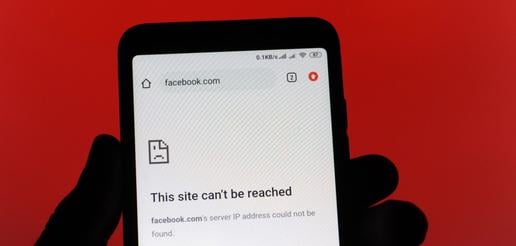

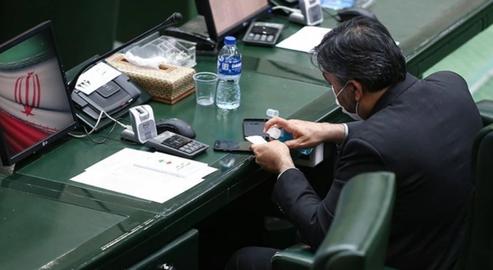
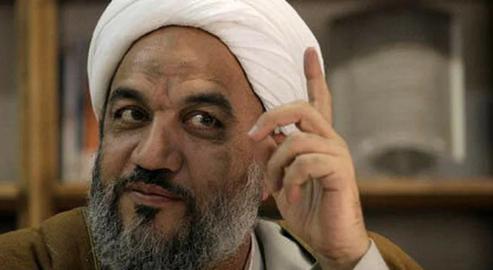

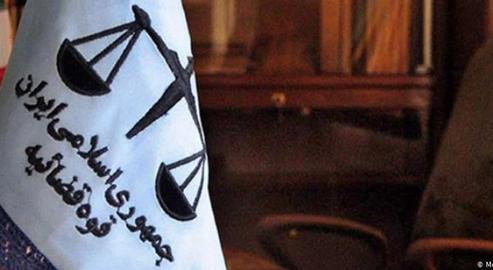




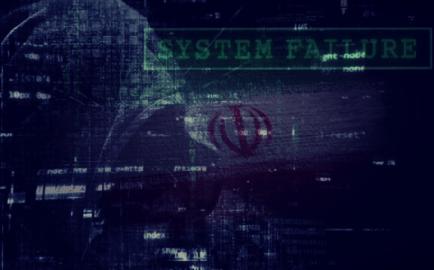



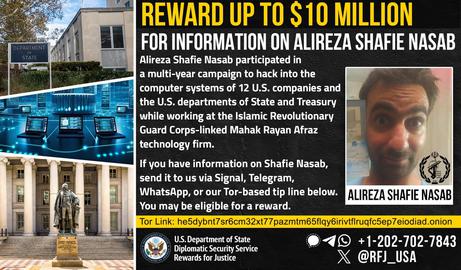


comments
They are already intercepting, have been for years. Satellite technology, directed energy weapons, psychological warfare in the form of militarized police, voice-to-skull torture/terror tactics, and brain interfaces with devices.